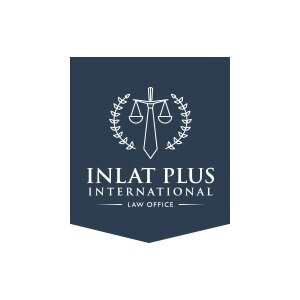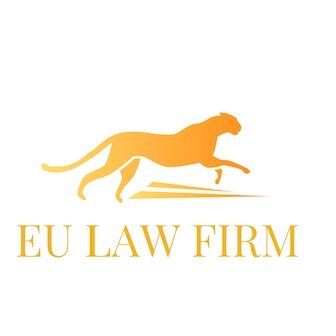Best International Lawyers in Riga
Share your needs with us, get contacted by law firms.
Free. Takes 2 min.
List of the best lawyers in Riga, Latvia
About International Law in Riga, Latvia
Riga, the capital of Latvia, is a significant center for international business and diplomacy in Northern Europe. As such, the city operates within a framework of international laws that pertain to trade, investment, immigration, and other global interactions. International law in Riga is shaped by various treaties, agreements, and conventions to which Latvia is a party, in addition to European Union laws and regulations. Businesses and individuals operating or looking to operate in Riga often encounter international law when dealing with cross-border transactions, residency issues, and multinational agreements.
Why You May Need a Lawyer
Legal advice is often necessary in situations where there are cross-border legal implications. Key examples include setting up an international business, dealing with international trade agreements, navigating immigration laws for residence or work, or ensuring compliance with international regulatory standards. Seeking legal advice ensures that you are well-informed about your rights and obligations under the law, and helps in mitigating risks involved in international dealings.
Local Laws Overview
Local laws in Riga are influenced by Latvian national law, EU legislation, as well as international legal standards. Some key aspects of local laws related to international issues include:
- Immigration Law: Governs the requirements for foreigners to enter, stay, and work in Latvia.
- Corporate Law: Structures and regulations for setting up and operating international businesses in Latvia.
- Tax Law: Latvia’s tax regulations and treaties concerning international business and individuals.
- Contract Law: Rules and norms governing agreements between local and international parties.
- Intellectual Property Law: Protection of trademarks, patents, and copyrights in an international context.
Frequently Asked Questions
What legal systems does Latvia follow?
Latvia operates under a civil law legal system, and as a member state of the European Union, its legal framework is also influenced by EU legislation. International law, including treaties and conventions, is also integrated into Latvian law where ratified.
Do I need a visa to work in Riga as a foreign national?
Foreign nationals from non-EU countries need to obtain a work visa and a residence permit to legally work in Riga, Latvia. EU, EEA, or Swiss citizens do not need a visa but must register their residence.
How do I set up an international business in Riga?
Setting up an international business in Riga requires registering the business with the Latvian Commercial Register and adhering to corporate law guidelines, which may involve additional steps for foreign nationals.
Is my home country's driving license valid in Riga?
EU-issued driving licenses are valid in Latvia. Non-EU licenses may require an International Driving Permit, and conditions for recognition and validity may vary.
Can I buy property in Riga as a non-resident?
Non-residents can buy property in Riga, but some restrictions apply. Legal advice is essential to understand the nuances of real estate acquisition by foreigners.
What taxes am I subject to as an international investor in Riga?
As an international investor, you may be subject to corporate, income, and capital gains taxes, affected by any double taxation treaties between Latvia and your home country.
How does Riga regulate international trade?
Riga, through Latvian and EU laws, regulates international trade by imposing standards, tariffs, and customs procedures. Compliance with specific trade agreements and conventions is also required.
What should I do if my rights under international law are violated in Riga?
If you believe your rights under international law have been violated, seek advice from an experienced international lawyer to discuss your legal options and possible recourse through domestic or international bodies.
How does EU law impact legal matters in Riga?
EU law is directly applicable in Latvia and affects various aspects of legal matters including trade, markets, human rights, and immigration. EU regulations and directives are integral to Latvian law.
Can I bring my family to Riga if I have a work permit?
Yes, it is generally possible to bring your family to Riga if you have a work permit, though they may also need to apply for the appropriate family reunification visas and permits.
Additional Resources
For those in need of legal advice in international matters in Riga, the following resources can be valuable:
- The Latvian Ministry of Foreign Affairs provides information on Latvian treaties and international agreements.
- The Investment and Development Agency of Latvia (LIAA) offers assistance with international trade and investment.
- The Office of Citizenship and Migration Affairs can help with visas, residence permits, and immigration inquiries.
- The European Judicial Network in Civil and Commercial Matters provides legal information regarding EU matters.
Next Steps
If you require legal assistance in international matters in Riga, the next steps include:
- Identify a lawyer with expertise in the specific area of international law related to your needs.
- Gather all relevant documents and information pertaining to your case.
- Schedule a consultation to discuss your situation, understanding your legal rights, and the options available.
- Follow the advice of your legal counsel to comply with local and international laws and resolve your legal matters.
Lawzana helps you find the best lawyers and law firms in Riga through a curated and pre-screened list of qualified legal professionals. Our platform offers rankings and detailed profiles of attorneys and law firms, allowing you to compare based on practice areas, including International, experience, and client feedback.
Each profile includes a description of the firm's areas of practice, client reviews, team members and partners, year of establishment, spoken languages, office locations, contact information, social media presence, and any published articles or resources. Most firms on our platform speak English and are experienced in both local and international legal matters.
Get a quote from top-rated law firms in Riga, Latvia — quickly, securely, and without unnecessary hassle.
Disclaimer:
The information provided on this page is for general informational purposes only and does not constitute legal advice. While we strive to ensure the accuracy and relevance of the content, legal information may change over time, and interpretations of the law can vary. You should always consult with a qualified legal professional for advice specific to your situation.
We disclaim all liability for actions taken or not taken based on the content of this page. If you believe any information is incorrect or outdated, please contact us, and we will review and update it where appropriate.

















